Board Governance Insights Blog

A Key Competency for Board and Advisory Directors
The ability to pose incisive questions is not merely a skill; rather, it is an art form. Used in company governance, it wields transformative influence over the trajectory and vitality of an organization. As a seasoned board director, I have borne witness to the profound impact that the art of questioning can have on steering effective decision-making, fostering transparency, and cultivating a culture of accountability and innovation. In this article, I seek to delve into the profound importance of mastering this art for board directors, drawing insights from the National Association of Corporate Directors (NACD) 2023 Blue Ribbon Commission Report, "Culture as the Foundation: Building a High-Performance Board."

Questions to Ask in the Boardroom
- How does your board handle discussions about age, race, or the LGBTQ+ community, since these groups help to diversify a board?
- What are old and new baselines for boards to consider about age, race, and the LGBTQ+ community as they diversify the board?
The Establishment of Old and New Baselines for Establishing Diversity on a Board
The original guidelines, or baselines, are described in a book where the authors address separate areas (Miller, F. A., & Katz, J. H. 2002. The Inclusion Breakthrough : Unleashing the Real Power of Diversity. San Fransisco: Berrett-Kohler Publishers). The book also addresses what have emerged as new baselines in these areas. I have used their descriptions as a starting point and expanded upon them based on my own professional experience to provide the description of old and new baselines that will follow in this article.
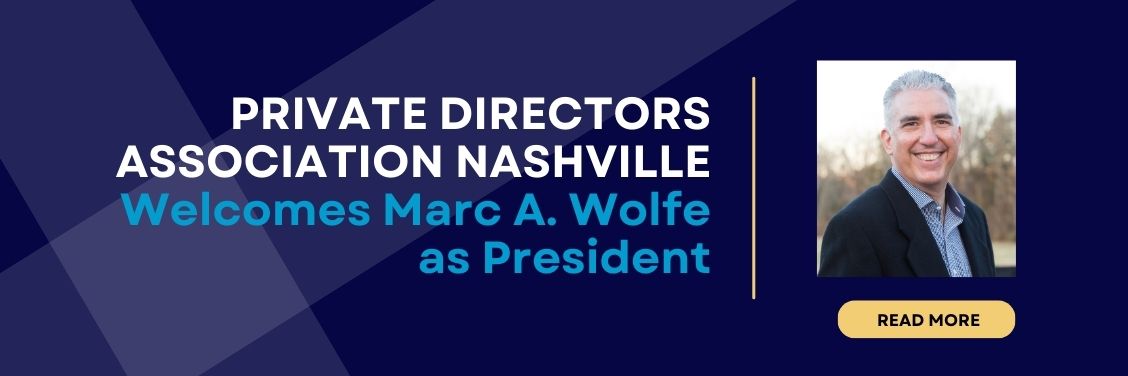
Wolfe’s proven success in transforming leadership approaches and perspectives promises to elevate the PDA Nashville Chapter to the next level of visibility and impact.
Nashville, Tennessee – January 30, 2024 –The Private Directors Association (PDA) is delighted to announce the appointment of Marc A. Wolfe as the President of its Nashville Chapter. With a rich history of leadership and a commitment to enhancing private company impact, Wolfe brings a wealth of experience and expertise to guide the Nashville Chapter to a level that matches the city’s growth.

Our world is experiencing the acceleration of systemic changes with unprecedented consequences to our capacity to make sense, know, and exert control over nature and one another.1 In January 2000, the late Stephen Hawking- who is regarded by many as one of the most impactful theoretical physicists of all time- stated that the “next century will be the century of complexity.”2 Today, we live in a hyper-connected world with unprecedented access to knowledge that fuels the perpetual creation of new technology, boundless choices, and unlimited possibilities. This change in dynamic directly affects boards of directors.
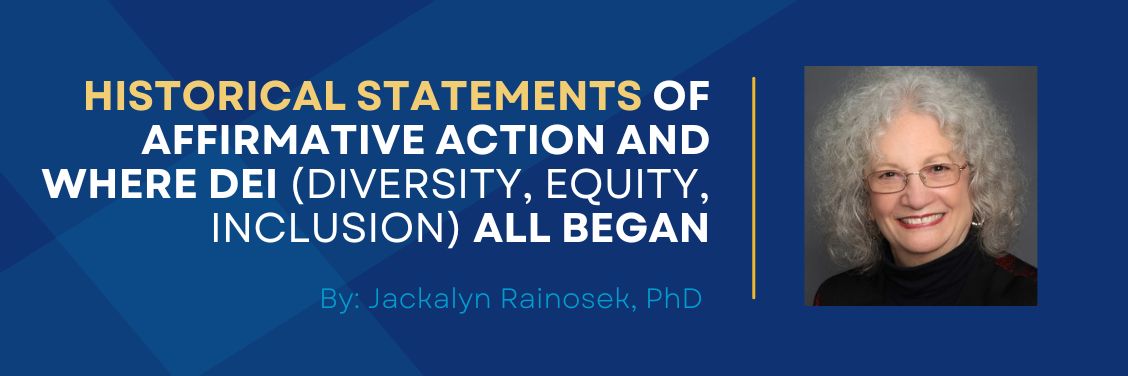
Questions to Ask in the Boardroom
- What do you know about Affirmative Action and what was the result of it?
- What were the concepts stated in Affirmative Action documents that would form a greater appreciation of identity groups such as age, race, gender?
Introduction
In this article, I will provide a brief summary of historical statements about Affirmative Action and references that offer more information on Affirmative Action. The concepts stated in the presidential orders were to establish a more equitable society and allow us to utilize the valuable human resources we have in the United States. When studied, Affirmative Action allows each of us to focus on promoting the human rights of all people in the United States.
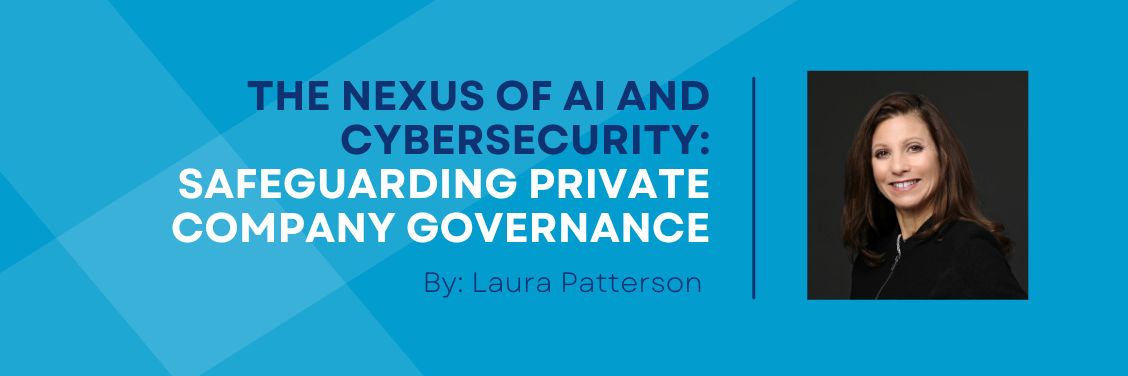
In today's digital age, where every company increasingly relies on data and technology, the intersection of artificial intelligence (AI) and cybersecurity is a critical and evolving battleground. As organizations navigate the complex landscape of threats and vulnerabilities, the role of AI in enhancing cybersecurity is going to increase and as a result will impact private companies and their governance.

Research by Forbes shows that delivering messages via storytelling can be up to 22 times more memorable than merely relying on just facts. And that's the reason to have this educational conversation on the Five Cs of great storytelling. To get going, let’s take a walk through each of the Cs and consider the different process steps that transform the delivery of a message through the art of great storytelling.

In the complex and ever-changing world of business, private company boards of directors face a multitude of challenges, from navigating regulatory landscapes to mitigating emerging risks. In this dynamic environment, internal audit emerges as a critical asset, providing invaluable insights and guidance to enhance governance, strengthen operations, and achieve strategic objectives.

Consider that OpenAI’s ChatGPT is … barely a year old. Yet recently, there’s been tremendous focus on AI (Artificial Intelligence) and regulating it. The key question is what does, and what will, AI oversight mean to board members in the short and long term?

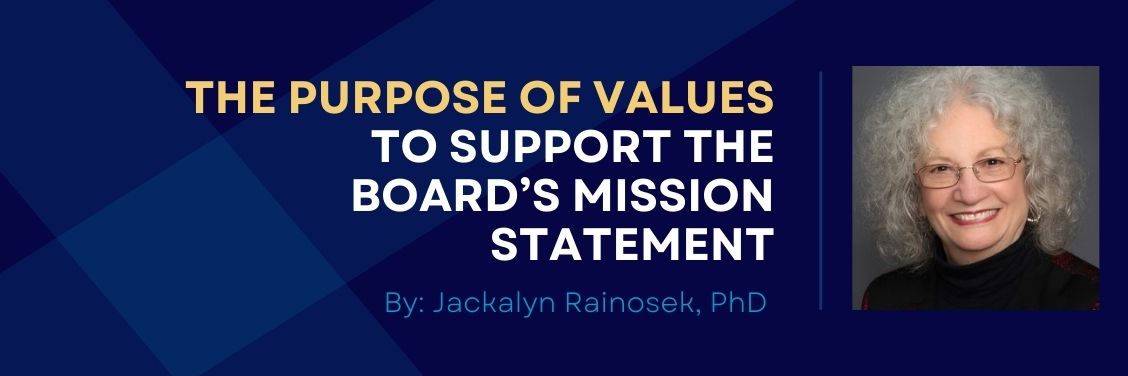
Questions to Ask in the Boardroom
- What are five values that are defined and utilized to support the board’s mission?
- How do board members identify their actions and behavior in the board meetings that show appreciation for the board values?
Taking the Next Step
I have another exercise I do with boards that continues the process of bringing members together by helping them to coalesce around a common set of values. These board values are based on board members first identifying their five most important personal values and then identifying a set of shared values from everyone’s personal values meant to guide the actions of the board.

Private companies typically do not audit their books unless an outside party requires it. Audits are a material expense and require great effort.
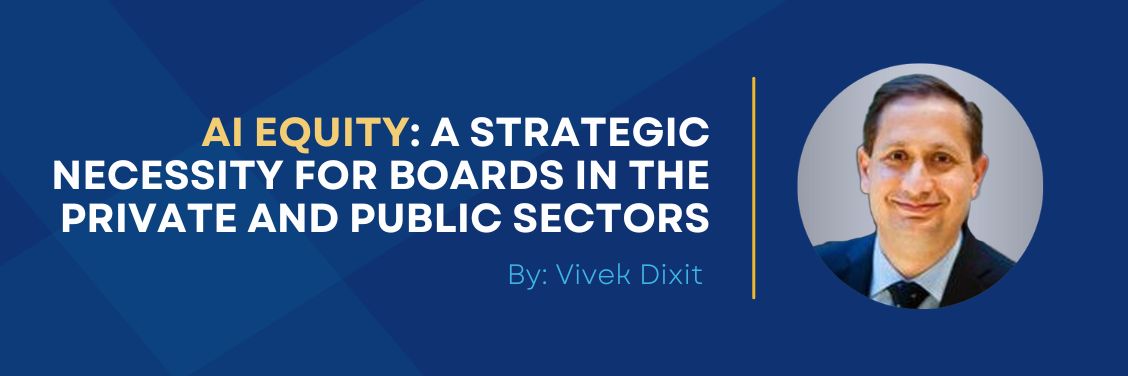
The ascent of Artificial Intelligence (AI) from a mere buzzword to a transformative powerhouse has been swift and all-encompassing, spanning various industries. Yet, this progress has brought to the fore a crucial concern – AI equity. Once a subject of philosophical debates, AI equity has evolved into a strategic imperative that resonates deeply within the domain of corporate governance. Beyond its ethical dimensions, AI equity now encompasses legal adherence, strategic significance, and the nurturing of stakeholder confidence. This piece delves into the multifaceted significance of AI equity for both private and public company boards, examining its strategic implications, legal obligations, and its role in fostering transparency and accountability.

AI is here to stay, and it’s incredible. But it also comes with terrifying risks that we’ve heard about in the press including IBM’s Watson, who debuted on Jeopardy in 2011, and then later in 2021, in the Healthcare space, failed sometimes under 50% of the time against human clinicians. (https://www.theregister.com/2022/01/31/machine_learning_the_hard_way/).

In today's rapidly evolving digital landscape, the governance of private companies faces unprecedented challenges in safeguarding sensitive data, maintaining customer trust, and complying with an array of regulations. As technology continues to transform industries, the importance of a robust security framework cannot be overstated. This article explores the significance of adopting reputable security frameworks, such as the National Institute of Standards and Technology (NIST) framework, in the governance of private companies.
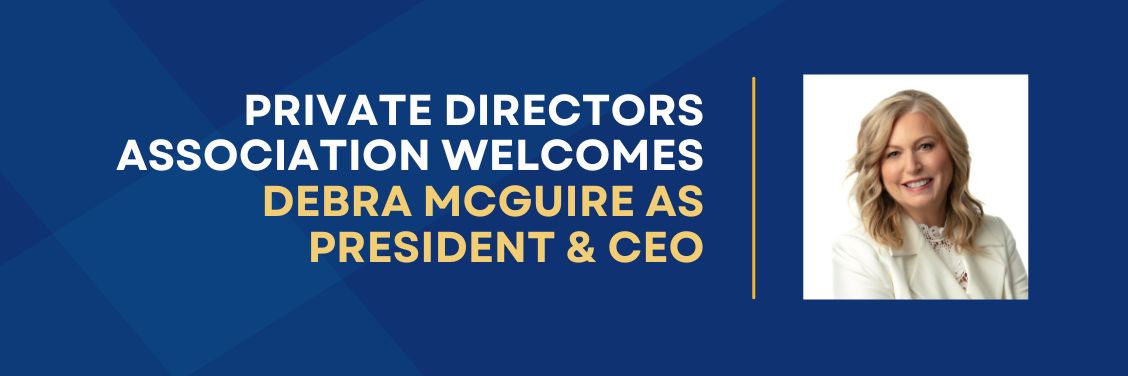
Renowned Association Management Executive Chosen to Lead National Association Dedicated to Serving Private Company Boards and Directors
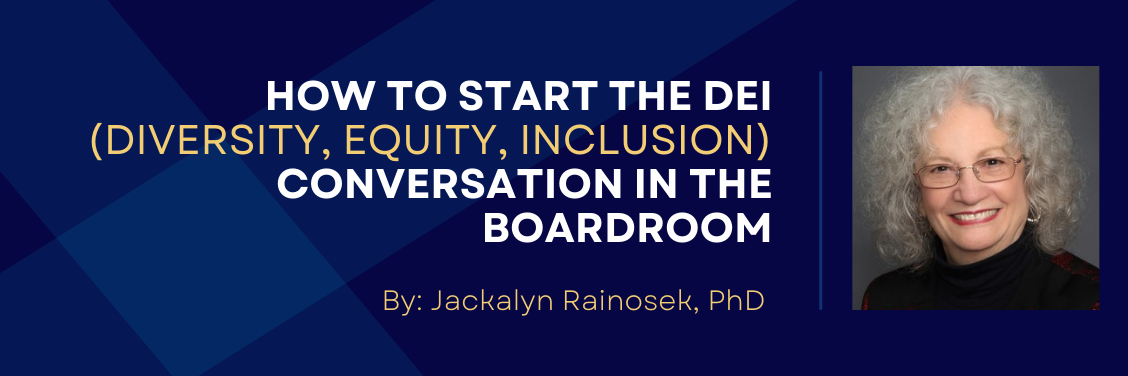
Questions to Ask in the Boardroom
- Each board member has resources to bring to the discussion and interactions of a board. What ways do board members contribute to the diversification of board discussions?
- What concerns do board members express about being a diverse board?
- How does telling personal stories about their experiences with DEI help to create an environment where the board members will share more about diversifying the board?
Introduction
As an Organizational Development professional, I have over 50 years of experience designing Diversity, Equity, and Inclusion (DEI) initiatives and providing programs for boards and their organizations. One of the most important actions I can take is to find a thoughtful way to identify how the personal histories of the board members can be a resource in the initial stages of a DEI effort to create a more diverse board. This article will give you ways to open the discussion about personal histories and resources that are present in your board.

Association Cross Pollination
How will you find an unpublished board position? The answer is almost inevitably, “Networking.” How will you find that talented CEO you need to hire? Again, “Networking.” There are few things more fundamental in the world of business than networking. If finding the right opportunity is a numbers game, then more networking will expand the surface area of “luck.”
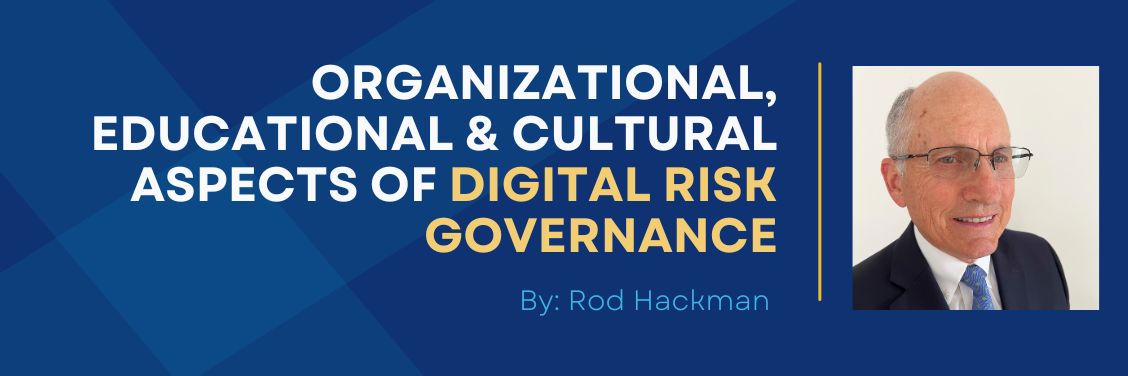
Boardrooms continually face seemingly unending governance, disclosure, regulatory and legal challenges related to digital systems risk. This is exacerbated by the rapid adoption of AI; a digital technology society is just beginning to grapple with and understand. AI is another, but much more powerful digital tool being added to the digital tool arsenal which businesses must employ to compete. These tools have evolved rapidly from segmented IT functions into the central nervous systems controlling the most vital assets and systems in all sectors of the economy, both private and public regardless of the nature or size of the enterprise. Highly sophisticated AI tools clearly magnify cyber-risk. In addition, they also introduce new, much more complicated risks which are perhaps more consequential than cyber-risk. Among the many examples are the introduction of biases, unintentional violation of laws and regulations, data exfiltration and erroneous decision making. The growing complexity and ever-changing persistent nature of AI and cyber-risk is daunting, seemingly overwhelming, and hard to understand. Boards are on the defense dealing with digital systems oversight.
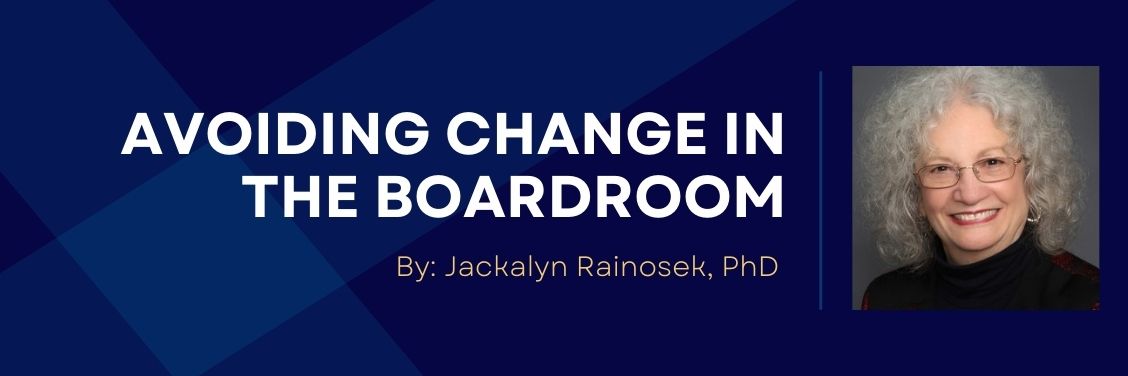
Questions to Ask in the Boardroom.
- What kinds of behaviors do you see in your board members that show they are resistant to change?
- How do they block efforts to diversify the board?
- Boards that function at a high level of performance are a high performing team. What would board members say about their team process?
Reasons Board Members Stay Stuck and Avoiding Change
For many years, I have found Mary Beth O’Neill’s book Executive Coaching with Backbone and Heart - A Systems Approach to Engaging leaders with Their Challenges to be a powerful and meaningful resource. She has the unique ability to put in one book many of the things a leader needs to know to move through blocks to change. She provides valuable information on how to address individual members or the board as an entity. When she discusses organizations and interactions in organizations, they are easily applied to a board. If you accept that a board is a team of people, then you will have no problem in learning from this book.
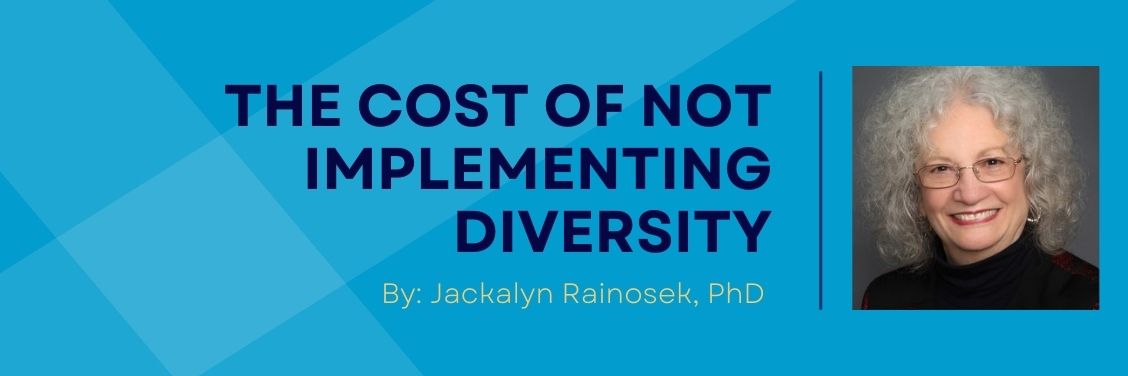
Questions to ask in the Board Room
- How do women provide a different perspectives versus men on a board?
- What is an “echo chamber of thought” in a board?
- How can the social responsibility of a business be addressed by the board with a DEI (Diversity, Equity, Inclusion) initiative?
Family-Owned and Privately-Owned Businesses and the Importance of DEI
Meghan Juday, who is CEO of her family-owned business, IDEAL Industries, joined Alan Aldworth on a PDA Shine Podcast to discuss “IDEAL relationships, board structure and board process, and to share her experience of family ownership, boardroom challenges and the value of an all-women network.” She also discussed the value they see in their DEI focus. She indicated that the shift in products and expansion of their business was due to the diversity of ideas and expertise that they had on their newly formed board. This diversity of thought helped them go through the recent pandemic with remarkable success and continue to build and expand their organization. She saw the value of having more women involved, as well as different races and age diversity, since this eliminated what she called an “echo chamber of thought.” Meghan made the point that, “If one grows up in a family, works in a family-owned business, and DEI is not supported, then you end up with an organization and work environment that has no unique thoughts or ideas and is limited in finding solutions that are beyond the current family echo chamber.” This is a 100-year-old company, and they are more excited than ever about the products, the board, and organizational culture.
- Page 2 of 4
- << first < Prev 1 2 3 4 Next > last >>





















